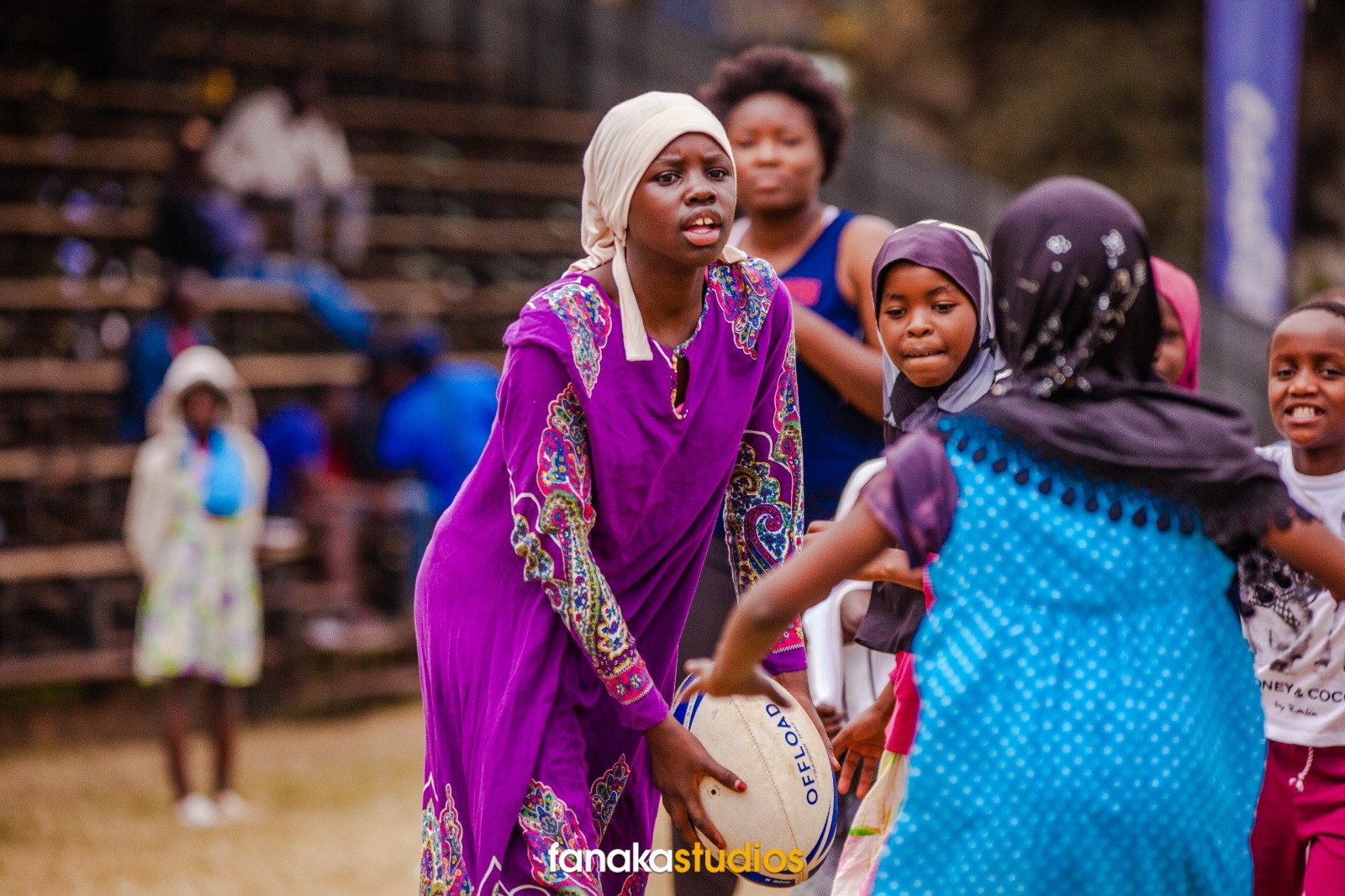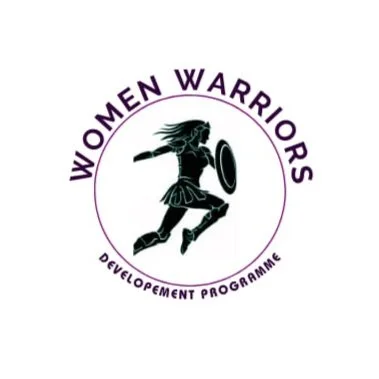
Our Approach
How does the Women Warriors Development Programme approach working with young women in Nairobi?
The Women Warriors Development Programme works to empower both the girls living in informal settlements and the mentors/coaches who are current or former Kenyan Women’s National Rugby Team players. Many coaches come from other informal settlements and have limited economic opportunities. There is minimal compensation for Women’s National team members in Kenya, and clubs in Kenya do not offer salaries. Providing a rugby field in Kibera where girls can train empowers the community and shows that excellence can be achieved in any environment. The organization seeks to empower young female athletes in Kenya to advance women in sports and create a new generation where young girls prioritize their mental/physical health, are confident in themselves, and can have a brighter economic and social future.
Our Programme
Fifteen minutes before practice starts, players get ready and talk with coaches.
Rugby Practice lasts for an hour and fifteen minutes.
Quick practice debriefs followed by 30 minutes of planned subjects for life skills for that day.
Meal or snack with water to end.
Our Impact
Established in February of 2022, we started with 15 girls and two coaches in Kibera.
Currently, the Women Warriors Development Programme coaches and mentors 45 girls between our two clubs in Kibera and Kawangare.
We have four coaches.
Our provided meals are cooked and prepared by a local caterer in Kibera.
Alignment with UN Sustainable Development Goals
Target 2.2
By 2030, end all forms of malnutrition, including achieving 2025 the internationally agreed targets on stunting and wasting in children under 5 years of age, and address the nutritional needs of adolescent girls, pregnant and lactating women, and older persons.
Target 3.7
By 2030, ensure universal access to sexual and reproductive healthcare services, including family planning, information and education, and the integration of reproductive health into national strategies and programmes.
Target 4.4
By 2030, substantially increase the number of youth and adults who have relevant skills, including technical and vocational skills, for employment, decent jobs, and entrepreneurship.
Target 6.1
By 2030, achieve universal and equitable access to safe and affordable drinking water for all.
Target 6.2
By 2030, achieve access to adequate and equitable sanitation and hygiene for all and end open defecation, paying special attention to the needs of women and girls and those in vulnerable situations.
Target 8.6
By 2020, substantially reduce the proportion of youth not in employment, education, or training.
UN Sustainable Development Goals Progress
1 in 3 people globally struggle with moderate to severe food insecurity.
Since 2000, little to no progress has been made in decreasing the 30% prevalence of anemia in women of productive age (15-49 years old).
57.4% of women of reproductive age in Sub-Saharan Africa have their need for family planning satisfied with modern contraceptive methods, which is expected to rise to 62.1% by 2030.
Based on Data from 68 countries from 2007 to 2022, only 37% of married or in-union women of reproductive age in Sub-Saharan Africa make their own decisions regarding sexual and reproductive health.
In 2017, 40-50% of youths aged 15-24 participated in formal or non-formal education and training.
2.2 billion people still lacked access to safely managed drinking water.
3.5 billion people lack safely managed sanitation.
2.2 billion people lacked basic hand washing facilities.
2 billion (58% globally) workers are in informal employment without social protection.
1 in 4 young people are not in education, empowerment, or training, with young women being twice as likely than young men to be in the same situation.



